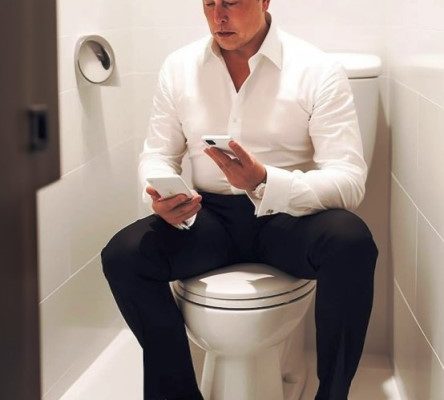By Gbolahan M.A. Alabi-Isama MS
The Dirty Truth About Our Phones
It’s no secret that we love our mobile phones. They are constantly by our side, always within reach, and we touch them hundreds, if not thousands, of times a day. However, it turns out that our beloved mobiles are filthy – and I mean really disgusting – covered in all sorts of germs, bacteria, and viruses, and are actually dirtier than a toilet seat. Yes, that’s right, people who love a good scroll on the toilet seat, your phone probably has faeces on it.
RELATED: Extending Coverage: Wi-Fi access points for Nigerian small businesses
Why Our Phones Are So Germ-Infested
Our mobile phones have become an extension of our hands, and we use them for just about everything – from making calls and sending texts to browsing social media, checking emails, and ordering food. We take them with us everywhere, from the bathroom to the kitchen, and we share them with others. Our phones are always with us, which means they pick up all sorts of germs and bacteria along the way.
The Importance of Mobile Phone Hygiene
While we may wash our hands after using the bathroom, cooking, or cleaning, we are much less likely to wash our hands after touching our phones. This means that we are constantly transferring germs and bacteria to our phones, which can then be transferred back to us. In fact, studies have shown that our phones can be up to 10 times dirtier than a toilet seat. And with the current COVID-19 pandemic, it’s more important than ever to keep our phones clean and hygienic.
Tips for Keeping Your Phone Clean and Hygienic
If you’re wondering why you need to stop scrolling in the bathroom, it’s because our phones are a breeding ground for bacteria. When we flush the toilet, it creates a cloud of microscopic droplets that can contain harmful bacteria and viruses, which can then settle on our phones. And because we’re in such close proximity to our phones when we’re scrolling in the bathroom, we’re much more likely to transfer those germs and bacteria to our hands, face, and other surfaces.
Why You Need to Stop Scrolling in the Bathroom
The problem is that we are much less likely to wash our hands after touching our phones. This means that we are constantly transferring germs and bacteria to our phones, which can then be transferred back to us. This can lead to all sorts of health problems, from stomach bugs to respiratory infections, and can even make us more susceptible to COVID-19.
To make a change, we need to start taking mobile phone hygiene more seriously. We need to clean our phones regularly, wash our hands after touching them, and avoid using them in the bathroom. As the saying goes, prevention is better than cure.
Conclusion:
Taking mobile phone hygiene seriously is a crucial part of staying healthy and preventing the spread of illness. Our phones are an integral part of our daily lives, but we need to recognize the potential dangers they pose to our health. By regularly cleaning our phones and washing our hands after touching them, we can reduce the risk of illness and keep ourselves and those around us safe.
FAQ:
Q: How often should I clean my phone?
A: Ideally, you should clean your phone at least once a day, but if you’re using it more frequently or sharing it with others, you may need to clean it more often.
Q: What’s the best way to clean my phone?
A: You can clean your phone with a microfiber cloth and a solution of 60% water and 40% rubbing alcohol. Make sure to avoid getting any liquid in the charging port or speaker.
Q: Is it safe to use disinfectant wipes to clean my phone?
A: Yes, it is safe to use disinfectant wipes to clean your phone, but make sure to use ones that are specifically designed for electronic devices. Avoid using harsh chemicals or abrasive materials that could damage your phone.
Q: Why is it important to wash my hands after touching my phone?
A: Your phone is a breeding ground for germs and bacteria, and by touching it, you’re transferring those germs and bacteria to your hands. Washing your hands after touching your phone helps to prevent the spread of illness and keeps you healthy.
This article is for educational purposes and does not constitute legal, financial, or tax advice. For specific advice applicable to your business, please contact a professional.

Gbolahan M.A. Alabi-Isama MS is Founder/CEO at Supercomafri





























